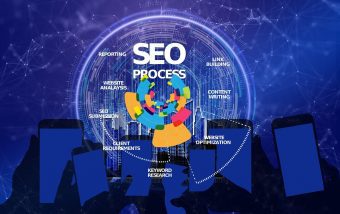How To Know If Someone Blocked You On iMessage? 5 Secret Hacks!
Apr 16, 2025

Apr 16, 2025

Apr 16, 2025

Apr 15, 2025

Apr 11, 2025

Apr 11, 2025

Apr 11, 2025

Apr 08, 2025

Mar 29, 2025
Sorry, but nothing matched your search "". Please try again with some different keywords.

If you are looking for a way to boost your website’s visibility and attract more customers, you might want to consider optimizing your site for search engines. One such example is an Adventure Experience Website!
Search engine optimization (SEO) is the process of improving your site’s relevance, quality, and user experience. The goal is to rank it higher on the results pages of Google, Bing, and other search engines. SEO can help you reach more potential customers who are searching for keywords related to your niche, such as flying experience or hot air balloon ride experience.
But how can you improve your SEO rankings for a hot air balloon ride experience website?
Here are some tips and best practices that you can follow to make your site more appealing to both search engines and users.
Keyword research is the base of any SEO strategy. Basically, it involves discovering what phrases and words your target audience is optimizing to search for your products or services online. For this purpose, you might use tools such as Google Keyword Planner, SEMrush, or Moz Keyword Explorer to discover the most popular and relevant keywords for your niche.
Once you have a list of keywords for your Adventure Experience Website, you need to analyze them based on the search volume, competition, and intent. You want to choose keywords that consist of low competition, high search volume, and high intent. High intent, it means that the user is looking for something specific and is probably going to take action, such as booking a hot air balloon ride experience.
For example, a keyword like “flying experience” might have a high search volume, but it is also very broad and competitive. It could mean anything from skydiving to flying lessons. A keyword like “hot air balloon ride experience near me” might have a lower search volume, but it is more specific and has high intent. It shows that the user is interested in booking a hot air balloon ride in their area.
Your site structure refers to how your pages are organized and linked together. A good site structure makes it easy for both search engines and users to navigate and understand your site. It also helps to distribute your site’s authority and relevance across your pages.
To optimize your site structure, you need to follow these steps:

Your content is the most important element of your site. It is what provides value to your users and convinces them to take action. You can take the example from the adventure experience website Wonderdays. It is also what search engines use to determine the relevance and quality of your site.
To optimize your content, you need to follow these guidelines:
Plagiarism and AI content detection can harm your SEO rankings and reputation.
Your content should be engaging, informative, and appealing to your audience. It should also include keywords naturally and strategically, without overusing or stuffing them.
Long-form content tends to rank better than short-form content because it signals authority and expertise. Aim for at least 950 words per page or blog post.
Headings also help search engines understand the main points of your content. Use H1 tags for the title of your page or post, H2 tags for the main subheadings, and H3 tags for the sub-subheadings. Include keywords in your headings, but avoid using the same keyword more than once.
Visual elements can also help to explain complex concepts and provide additional information. However, make sure to optimize your images for SEO by using descriptive and keyword-rich file names, alt texts, captions, and titles. Also, compress your images to reduce their file size and loading time.
External links help to establish the credibility and trustworthiness of your content. They also help search engines understand the context and topic of your content. However, make sure to link only to reputable and relevant sites and use the “nofollow” attribute for any paid or sponsored links.
Meta tags are snippets of code that provide information about your site and content to search engines and users. They appear in the source code of your site, as well as in the search results pages.
The most important meta tags for SEO are:
You can make use of tools such as All in One SEO Pack or Yoast SEO to create and modify your meta tags without much effort.
Read Also:
Arnab is a professional blogger, having an enormous interest in writing blogs and other jones of calligraphies. In terms of his professional commitments, He carries out sharing sentient blogs.
View all Posts
How To Know If Someone Blocked You On iMessag...
Apr 16, 2025
7 Website Design Mistakes That Are Hurting Yo...
Apr 16, 2025
Programmable Dynamic SEO for Location-Based P...
Apr 15, 2025
Google Boba Game: How To Play This Fun Game B...
Apr 11, 2025
Which Is The Best Video Search Engine Of 2025...
Apr 11, 2025


